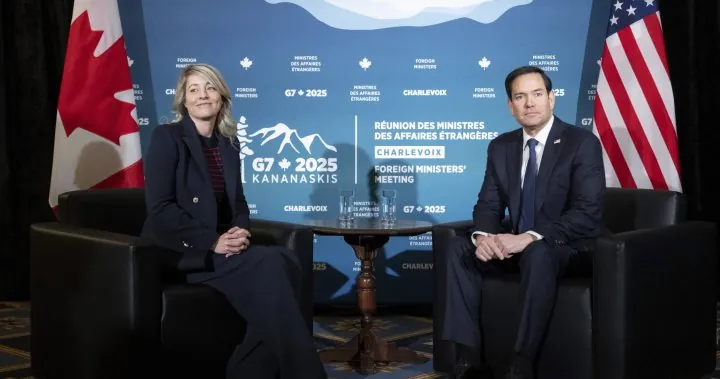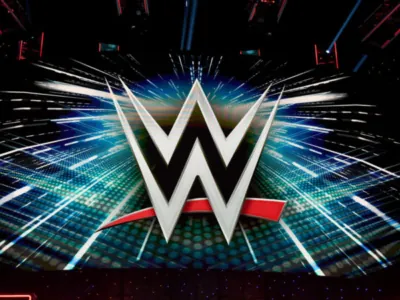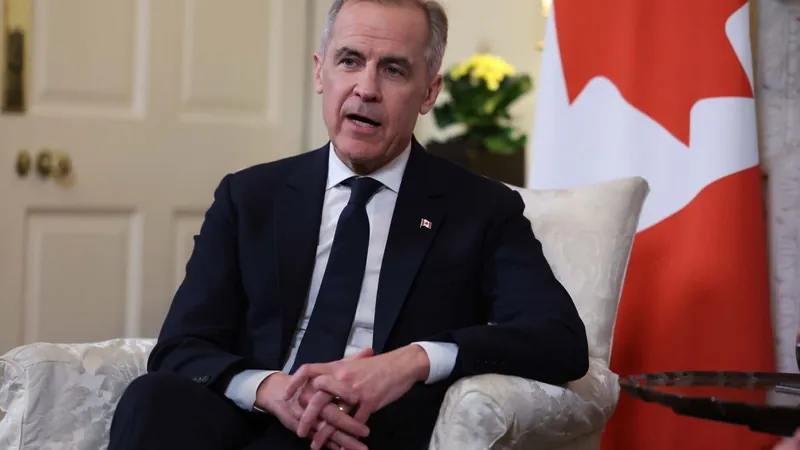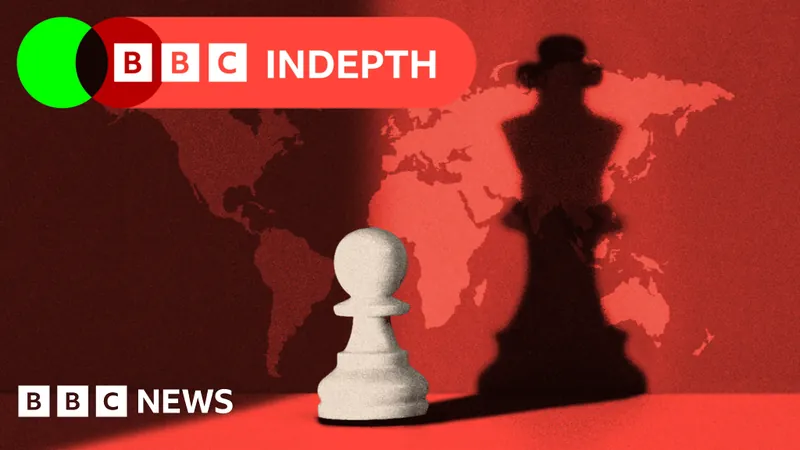
U.S. Secretary of State Defends Trump’s Controversial “51st State” Remarks During G7 Summit in Canada
2025-03-14
Author: Amelia
During a highly scrutinized press conference in Charlevoix, Quebec, U.S. Secretary of State Marco Rubio stood firmly behind President Donald Trump's provocative comments suggesting the idea of Canada becoming the 51st state of the United States. This statement adds to the ongoing tensions between the two countries, particularly amid a brewing trade war.
As reporters pressed Rubio for clarity on whether he endorses Trump's remarks, particularly the comment referring to the Canada-U.S. border as an “artificial line,” Rubio remarked, "The Canadian government has made their position clear, and the president believes that Canada could benefit economically from joining the United States."
Rubio’s defense of the remarks comes at a time when U.S.-Canada relations are strained due to escalating trade tariffs imposed by the U.S. On various occasions, Trump has insisted that if Canada were to join the U.S., it would result in economic advantages for both nations—a viewpoint he has not shied away from reiterating since it was first mentioned in meetings with Canadian Prime Minister Justin Trudeau.
The contentious debate took root during a meeting at Trump’s Mar-a-Lago resort in Florida back in December 2024, where Trudeau allegedly expressed concerns over potential tariffs that could undermine Canada as a sovereign nation. Rubio recounted this moment, stating, “When Trudeau suggested Canada couldn't survive tariffs, Trump countered, ‘Well, you should become a state.’” This conversation has fueled speculation and concern regarding the future of U.S.-Canada relations, with critics interpreting Trump's remarks as a serious threat to Canadian sovereignty.
In public reactions, Prime Minister Trudeau initially dismissed Trump’s "51st state" suggestion as a joke. However, with repeated comments from the U.S. President, Trudeau later voiced stronger opposition, articulating fears that such rhetoric could aim at destabilizing Canada's economy to facilitate annexation.
Canada's new Prime Minister, Mark Carney, reaffirmed the country’s sovereignty, asserting, "We will never, ever in any way, shape or form be part of the United States. America is not Canada." This sentiment echoes across the Canadian government, with Foreign Minister Mélanie Joly expressing alarm during her discussions at the G7 summit. Joly recounted how international counterparts reacted incredulously to Trump’s threats, leading her to assure them, “This is not a joke. Canadians are anxious and proud people.”
As global leaders met at the G7, they voiced their support for Canada’s territorial integrity. German Foreign Minister Annalena Baerbock emphasized the unity among democratic nations, stating that their commitment to the sovereignty of nations like Canada is as firm as that toward Ukraine.
Despite diverging opinions on how to engage with U.S. policies, the G7 summit underscored the importance of collaboration and respect for national boundaries. With talks of new trade deals and diplomatic efforts underway, the international community continues to closely monitor how the tensions between the U.S. and Canada develop.
As the debate over Trump's rhetoric continues, one thing remains clear: the idea of Canadian annexation is far from a passive discussion, and its implications resonate across both sides of the border.









 Brasil (PT)
Brasil (PT)
 Canada (EN)
Canada (EN)
 Chile (ES)
Chile (ES)
 Česko (CS)
Česko (CS)
 대한민국 (KO)
대한민국 (KO)
 España (ES)
España (ES)
 France (FR)
France (FR)
 Hong Kong (EN)
Hong Kong (EN)
 Italia (IT)
Italia (IT)
 日本 (JA)
日本 (JA)
 Magyarország (HU)
Magyarország (HU)
 Norge (NO)
Norge (NO)
 Polska (PL)
Polska (PL)
 Schweiz (DE)
Schweiz (DE)
 Singapore (EN)
Singapore (EN)
 Sverige (SV)
Sverige (SV)
 Suomi (FI)
Suomi (FI)
 Türkiye (TR)
Türkiye (TR)
 الإمارات العربية المتحدة (AR)
الإمارات العربية المتحدة (AR)